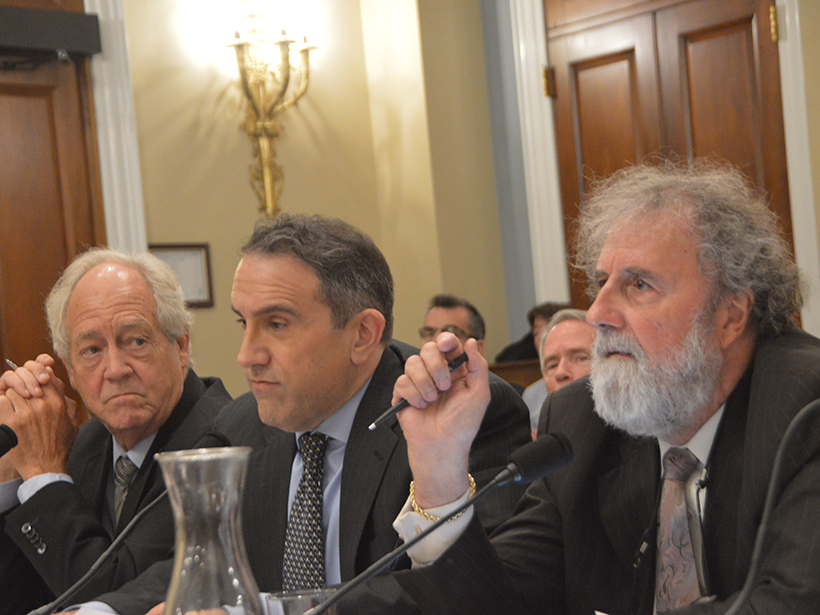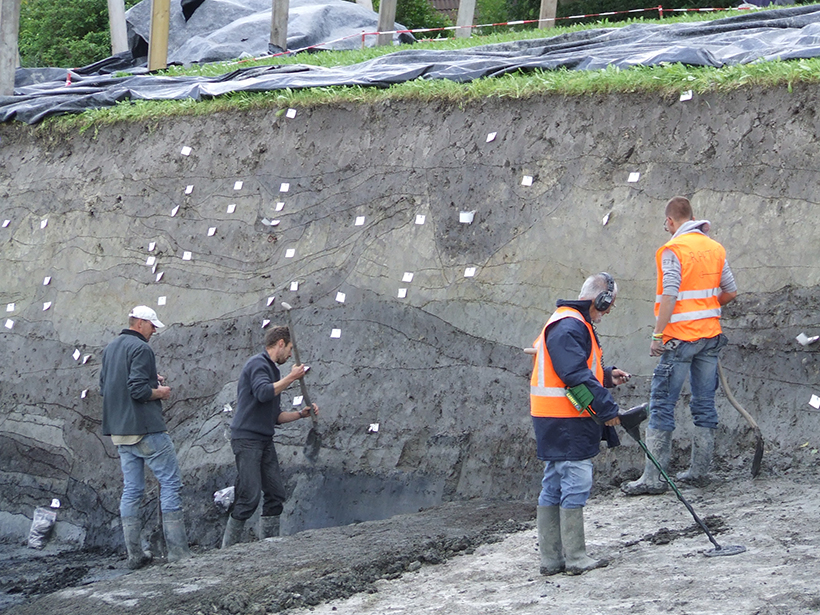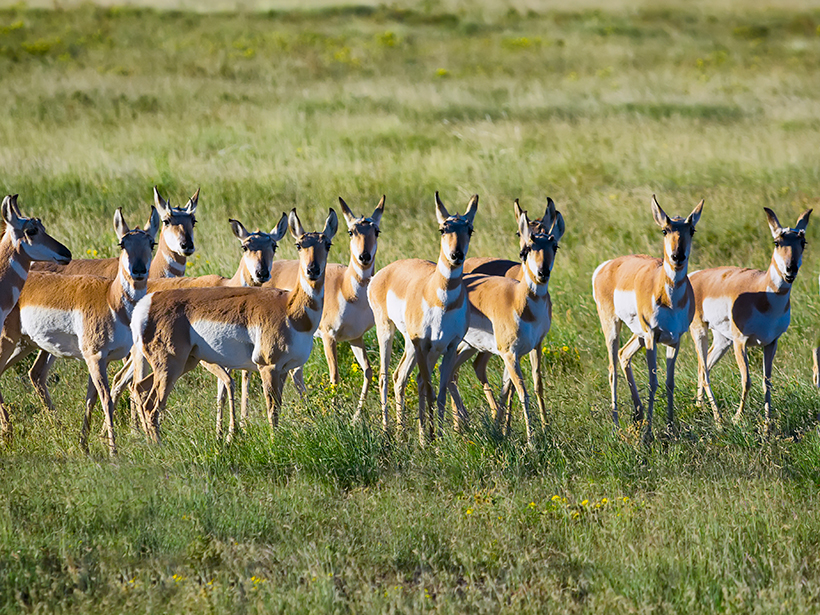This discovery is the latest in a growing stack of evidence pointing to the presence of an ammonia-rich water ocean beneath Pluto’s icy crust.
News
Hiroshima Bomb Created Asteroid Impact–Like Glass
The glass rained from the sky as the bomb annihilated the Japanese city.
Seismic Clues to Surging Glaciers
Measuring seismic waves passing through a glacier suggests that not only is liquid water playing a role in periodic surging but the water is channeled into cracks from across the ice.
Congress Hears Biodiversity Warning During a Charged Hearing
At a testy congressional hearing, leading experts confronted attacks on the science.
Historic Solutions to Sea Level Rise May Help Modern Communities
Earthen mounds helped ancient Dutch settlers thrive in coastal flood zones. Could historical engineering help us fight against rising seas?
New Stamps Tell a Wild and Scenic River Story
The U.S. Postal Service has issued a new set of Forever postage stamps that feature evocative photos of some of the rivers protected by the U.S. National Wild and Scenic Rivers System.
Farm Ponds Sequester Greenhouse Gases
Despite runoff from nitrogen-rich fertilizer, agricultural ponds act as powerful sinks for nitrous oxide.
New Book Examines the Legacy of Apollo
As the 50th anniversary of the Apollo 11 lunar landing nears, a new book looks back on the race to the Moon.
Bill Would Create a Wildlife Corridors System to Protect Species
In the wake of a recent United Nations report about threats to biodiversity, congressional legislation aims to protect wildlife that faces habitat loss, degradation, and fragmentation.
Podcast: A Tale of Two Journeys
In the latest episode of its Centennial series, AGU’s Third Pod from the Sun tells the story of two parties journeying to the South Pole in 1911 and the extraordinary impact that weather had on their travels.










